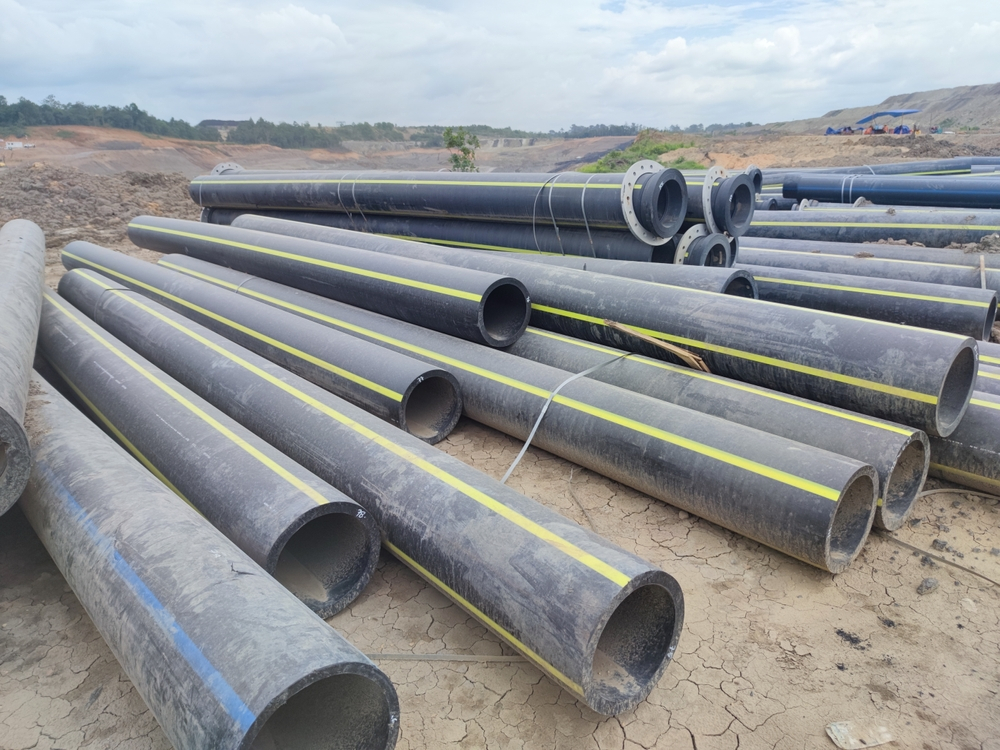How American Plastics HDPE Pipe for Oilfield Supports Reliable Transport Systems
Understanding the Secret Advantages of HDPE Pipe for Water and Wastewater Management
The usage of HDPE pipe in water and wastewater management offers numerous advantages that merit factor to consider. Its phenomenal toughness and long life-span make it a favored selection for several jobs. Additionally, the product's resistance to rust and chemical damage boosts its integrity in numerous atmospheres. Nevertheless, the advantages expand past simply long life and resistance. Discovering its cost-effectiveness and ecological effect exposes also much more compelling factors for its extensive adoption in modern-day infrastructure
Exceptional Durability and Longevity

HDPE pipe sticks out for its phenomenal toughness and long life, making it a favored selection in water management systems. Constructed from high-density polyethylene, these pipelines can hold up against considerable pressure and anxiety, ensuring dependable performance in time. Their robust nature permits them to withstand severe environmental conditions, consisting of temperature fluctuations and dirt motions, which can create various other materials to fail.
The life expectancy of HDPE pipes often surpasses half a century, providing an economical remedy for towns and sectors alike. In addition, the product's light-weight residential or commercial properties simplify setup, reducing labor costs and durations. This sturdiness decreases the requirement for constant repair work or substitutes, even more enhancing its financial appeal.
In water administration applications, the integrity of HDPE pipes implies less disturbances and improved solution connection, making them integral to lasting facilities growth. The mix of longevity and long life strengthens HDPE's role as a cornerstone in reliable water management options.

Resistance to Deterioration and Chemical Damage
While several products catch deterioration and chemical damage gradually, HDPE pipes exhibit remarkable resistance, making them perfect for numerous water administration applications. This resilience originates from the molecular structure of high-density polyethylene, which is naturally non-reactive and does not rust like steels or break down from exposure to extreme chemicals. As a result, HDPE is very reliable in settings with aggressive materials, such as wastewater systems that may have acids, bases, and organic solvents.
In addition, HDPE pipes can endure ecological elements such as dirt level of acidity and saline problems, further improving their suitability for varied applications (hdpe pipe in stock Midland TX). Their ability to preserve architectural integrity in time lowers the risk of leaks and failures, which is critical in making sure the safety and security and reliability of water distribution and wastewater administration systems. Subsequently, the resistance to deterioration and chemical damages considerably adds to the general performance and long life of HDPE piping remedies
Cost-Effectiveness and Financial Benefits
When taking into consideration the economic effects of water management systems, the cost-effectiveness of HDPE pipelines comes to be evident. These pipes offer lower installation and maintenance costs contrasted to traditional materials like steel or concrete. Their light-weight nature streamlines transport and setup, leading to minimized labor expenditures. In addition, HDPE pipes exhibit a lengthy life-span, frequently exceeding 50 years, which translates to fewer substitutes and lasting cost savings.
The resistance of HDPE to deterioration and chemical damages decreases the need for costly fixings and replacements. The pipelines likewise sustain reliable water circulation, reducing energy costs connected with pumping systems. By mitigating leaks and water loss, HDPE pipelines add to considerable economic benefits for municipalities and industries alike. Overall, the preliminary financial investment in HDPE piping can generate considerable financial returns over the life-span of the water administration system, making it a sensible option for sustainable framework advancement.
Environmental Sustainability and Minimized Impact

Convenience and Flexibility in Setup
As a result of their distinct residential or commercial properties, HDPE pipes supply amazing convenience and flexibility in setup, making them ideal for a variety of applications. Their light-weight nature permits less complicated handling and transport, reducing labor expenses and installation time. HDPE pipes can be bent and formed to fit different terrains and task needs, which is particularly valuable in challenging environments.
In addition, their resistance to rust and chemical damage enables installment in diverse settings without the demand for specialized safety coatings. The ability to fuse joints produces a continual, leak-free system, improving the total stability and reliability of visit their website the installment. HDPE's flexibility also accommodates ground movement, minimizing the danger of damages in areas prone to shifting soil. Overall, these qualities make HDPE pipes not only versatile but also a preferred option for water and wastewater management systems.
Regularly Asked Questions
How Does HDPE Pipe Compare to PVC in Water Management Applications?
HDPE pipe uses superior versatility, resistance to rust, and longevity compared to PVC. Its lighter weight facilitates much easier installation, while its long lifespan lowers substitute expenses, making HDPE a preferred selection in water administration applications.
What Is the Lifespan of HDPE Pipes Under Regular Problems?
Under normal conditions, HDPE pipelines can have a life-span ranging from 50 to 100 years. Their sturdiness and resistance to corrosion add to their long-lasting performance in numerous applications, making them a reliable selection for facilities.
Are HDPE Pipes Recyclable After Their Life Span?
Yes, HDPE pipes are recyclable after their life span. American Plastics HDPE Pipe for Oilfield. They can be processed and repurposed into brand-new products, substantially reducing environmental effect and advertising sustainability within the industry, making them an environmentally friendly selection for piping solutions
What Is the Installment Process for HDPE Water Lines?
The installation procedure for HDPE pipelines involves site prep work, trenching, pipeline fusion or mechanical my sources signing up with, backfilling, and stress screening. Proper methods assure a long lasting and reliable system for carrying water and wastewater properly.
Can HDPE Water Lines Be Made Use Of for Both Potable and Non-Potable Water Solutions?
Yes, HDPE pipelines can be made use of for both potable and non-potable water systems. Their flexibility, longevity, and resistance to deterioration make them suitable for various applications, guaranteeing risk-free and reliable transportation of water in various contexts.